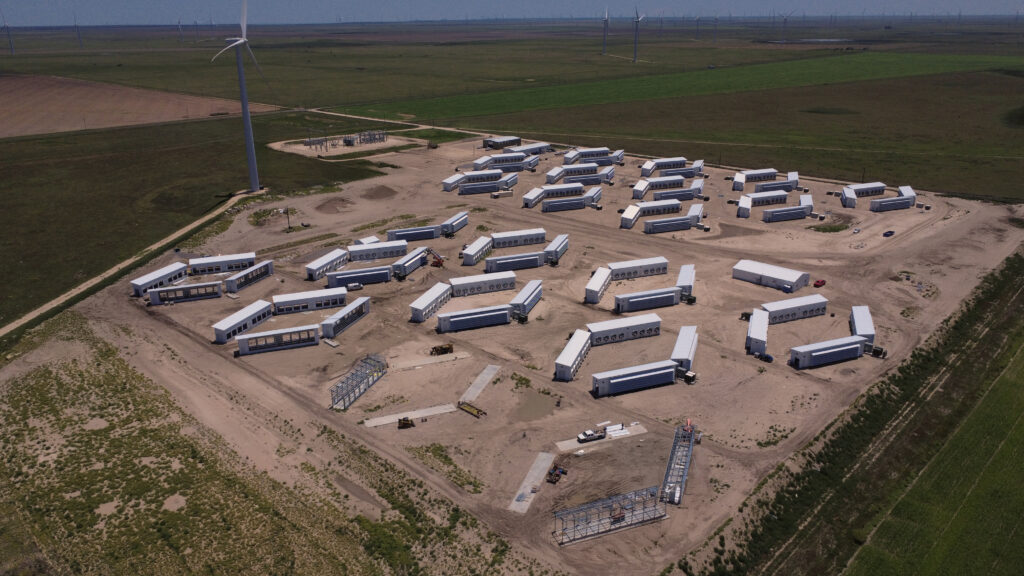At Soluna, we have conviction.
We believe the world needs more renewable energy and computing can be a powerful catalyst.
We believe that sustainable Bitcoin is not only possible, but it also presents an opportunity for the world.
We believe working with the world’s largest infrastructure players can help accelerate the energy transition.
On our route, we’ve been watching with great interest the recurring theme of Good Bitcoin and Bad Bitcoin. We’ve enjoyed the debates extolling a global extinction powered by Bitcoin. And, we’ve been emboldened by new voices joining the discussion making a positive case for the young technology.
In 2020 we launched our new ZCloud business to bring the power of computing to help climate change. It starts with Bitcoin but goes way beyond.
To help educate our friends trying to understand the positive externalities of Bitcoin, we’ve prepared this compendium.
The following is a resource guide of curated articles and research covering the role of Bitcoin as an accelerant in the renewable energy transition. We recommend that you bookmark this page and come back to it as we continue to add to it. We’re committed to keeping you updated and informed on the latest in computing and clean energy.

Crypto Mining As An Entrepreneurial Endeavor
Blockworks, April 28, 2022
The science of crypto mining isn’t about spending computational energy. It’s about building the most efficient computational infrastructure. When you understand the science through this lens, crypto mining is really an entrepreneurial endeavor that will revolutionize data centers and move the world toward green energy.
Is Bitcoin Really That Bad for the Environment?
Forbes, April 3, 2022
For anyone not intimately familiar with the design and purpose of the bitcoin network, it’s becoming increasingly difficult to support the cryptocurrency without muzzling your environmental conscience. Yet bitcoin is not the gas-guzzler depicted by The New York Times and others.
How Bitcoin Mining Strengthens Electricity Grids
Bitcoin Magazine, March 12, 2022
The House Hearing on Crypto’s Energy Use & Impact, held on January 20, 2022, was ultimately championed by a stellar defense of Bitcoin’s energy use by Brian Brooks, with an especially enlightening testimony from one John Belizaire, founder of Soluna Computing. Belizaire and Brooks both laid out real-world examples of how Bitcoin mining is being used today to provide not only flexible income for utility providers and energy generators, but also providing stability for said networks.
How Clean Energy Can Further the Mass Adoption of Crypto
Blockworks, March 8, 2022
Bitcoin and crypto still have yet to find a positive place in society. Much of the public either hasn’t heard of crypto or regards it as some kind of fringe asset class used by criminals and geeks. That’s not to mention the bad reputation that mining has earned with regard to its environmental impact.
But what if these problems could be tackled in tandem? Could associating a surge in renewable energy usage among miners help to bring crypto into the mainstream while cleaning up its image at the same time?
Bitcoin Mining and the Case for More Energy
Bitcoin Magazine, December 8, 2021
Much ink has been spilt on the topic of Bitcoin’s energy consumption. Many have condemned Bitcoin’s growing use of energy, and in response, many others have sought to justify it. The war wages on, atop the battlegrounds of Twitter timelines, Medium pages and major news outlets. But much of this discourse fails to fully address the concept of energy itself.
Bitcoin Mining Can Be Good for the Planet
Bloomberg, April 22, 2021
Bitcoin mining is often decried as an energy hog, but according to Cathie Wood’s ARK Investment Management LLC, it could actually be good for the planet. Cryptocurrency mining can drive investment in solar power and make more renewable energy available to the grid, according to a post from ARK research director Brett Winton and co-authors Yassine Elmandjra and Sam Korus. “A world with bitcoin is a world that, at equilibrium, generates more electricity from renewable carbon-free sources,” they wrote.
Bitcoin is Key to an Abundant, Clean Energy Future
Square, April 21, 2021
In this memo, we aim to explain how the Bitcoin network functions as a unique energy buyer that could enable society to deploy substantially more solar and wind generation capacity. This deployment, along with energy storage, aims to facilitate the transition to a cleaner and more resilient electricity grid. We believe that the energy asset owners of today can become the essential bitcoin miners of tomorrow.
How Bitcoin Mining Can Support the Energy Transition
Wood Mackenzie, April 7, 2021
While not a magic bullet, bitcoin mining has strong potential in both demand response and exploiting stranded capacity in electricity generation. Bitcoin mining* often makes headlines because of the large quantity of electricity the process consumes. But there are opportunities for it to support the energy transition. We have identified two key short-term opportunities for bitcoin mining in the US: first, as a highly predictable and scalable demand response asset; and second, to provide additional demand for cheap, under-utilized electricity generated by independent power producers and utilities.
(We talked to Jonathan (Jonny) Sultoon, the Head of Markets & Transitions, Energy Transition Practice at Wood Mackenzie, about Regulation, Innovation, and the Future of Clean Energy on The Kingdom, a Soluna podcast. Listen here.)
Bitcoin as a Battery
Nick Grossman, April 20201
We are still very early in the process of learning how to think about crypto networks, let alone what we can build with them.
One area where I think we are going to see our conception of Crypto change dramatically over time is its relationship to energy. The narrative today is, overwhelmingly: crypto mining (specifically: Proof-of-Work mining for Bitcoin and Ethereum) is a dangerously large consumer of energy. Where I expect the narrative to move to overtime is: crypto mining is driving the energy transition from fossil fuels to renewables.
A Closer Look at the Environmental Impact of Bitcoin Mining
CoinShares, March 30, 2021
Bitcoin is a settlement system like FedWire, not a payments aggregator like Visa. It uses energy to deliver that function independently of central authorities. Global energy production continues to rely on fossil fuels. However, cryptocurrency mining is mobile and global — constantly seeking out the cheapest available electricity, often stranded renewables. Bitcoin mining has a substantial role, both in the present and the future, in eliminating waste and in load balancing power systems based on intermittent renewable energy.
(We talked to Christopher Bendiksen, the Head of Research at CoinShares, what it takes to conduct the research necessary to track bitcoin mining’s energy usage, the dangers of comparing PoW with PoS, and what this research highlights about Soluna’s wind farm project on The Kingdom, a Soluna podcast. Listen here.)
Why Bitcoin is Misunderstood
Blockworks, March 19, 2021
CoinShares Chief Strategy Officer, Meltem Demirors is the newest Stacks Foundation board member, and she is out to change the narrative around bitcoin. Demirors started her career as a physical ethanol and methanol trader in Texas. It was the midst of the financial crisis and the world was just starting to move to decarbonization. She then moved into consulting before working in the corporate treasury department at ExxonMobile. It was while getting her MBA at the Massachusetts Institute of Technology that she first became interested in bitcoin. Demirors got involved with digital assets early. For the rest of the world, bitcoin’s latest run is serving as the gateway into the technology.

Bitcoin Is A Better Battery
Soluna, March 5, 2021
Coinshares Chief Strategy Officer Meltem Demirors floated the thought-provoking concept that Bitcoin is actually a battery since it “makes energy mutable, portable, storable and transferable by turning it into money.” This idea forms a fascinating convergence of crypto and energy. John Belizaire, CEO of Soluna, interviewed John Bottomley, a prominent energy industry expert and Soluna Board member, By way of introduction, about the nature of batteries, battery performance, and the connection between crypto and a green energy future.
The Frustrating, Maddening, All-Consuming Bitcoin Energy Debate
CoinDesk, March 5, 2021
The Bitcoin energy debate rumbles on, seemingly without end. Bitcoiners are rightfully frustrated at having to defend Bitcoin’s share of global energy production, given the lack of equivalent scrutiny applied to other apparently wasteful applications which consume similar amounts of energy. In a sense, arguing over minutiae like the energy mix of bitcoin (BTC, +0.33%) miners, as I have done in the past, is to miss the point. The question ultimately boils down not to the particulars of mining but rather the societal merit of non-state money.
Aker Shareholder Letter
Seetee, 2020
The estimated CO2 emission for producing new gold is more than 100 million tons per year. Estimates vary, but recent studies put Bitcoin’s around 30 million tons annually. That’s less than one-third of gold’s CO2 emissions. And as renewables increase in the mix, Bitcoin’s CO2 emission intensity should drop significantly. Note that this is still disregarding the cost of refining and storing gold, as well as the negative impact land excavation in less compliant regions of the world, has on both people and the environment. That leaves the most optimistic scenario for bitcoin. The one that gets us excited. Where Bitcoin’s ability to verify transactions between two parties without a trusted third party is used to build an ecosystem of applications.
The Solar-Bitcoin Coverage
VersionOne, September 4, 2020
I’ve spent the majority of the last decade working in two fields: solar energy and cryptocurrency. At first blush, these may seem pretty different. In my mind, however, they have a lot in common and are converging by the day. Both are based on principles of decentralization. Both are disrupting antiquated, opaque industries with large societal externalities (energy and banking). Both are following exponential adoption curves. And at an even more basic level: bitcoin is energy. The process of mining, which secures the Bitcoin blockchain and mints new bitcoin, is the process of converting electricity to work or value.
Bitcoin and Energy
Node Blockchain, August 31, 2018
It’s become popular today to dismiss Bitcoin’s Proof-of-Work as wasteful and bad for the environment. We believe this is a narrow view that misses the forest for the trees. We wrote this paper with the intention to illustrate the other side of the story and what we believe to be the positive externalities of Proof-of-Work mining.
(We talked to Saad Imran and Bobby Ahluwalia, the co-founders of Node Blockchain, about their research on Proof-of-Work mining and its benefits to the crypto economy. Their research challenges mainstream media’s vilification of Bitcoin mining’s energy consumption. Together, we unpack the positive impacts of Bitcoin on energy on The Kingdom, a Soluna podcast. Listen here.)



